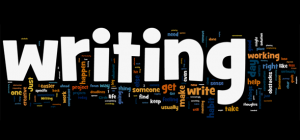I recently read a blog post by James Clear that suggested we forget about setting goals and focus on systems instead. I appreciated his points about how goal-focused thinking can get us into trouble because it can: 1) keep us dissatisfied with the present moment, 2) cause trouble with long-term progress, and 3) create a sense of control we might not actually have. I agree with all of those points.
But I disliked the implication that therefore goals should be forgotten. Like anything else, they are one possible tool to help us create outcomes that we want, and like any other tool, they need to be used wisely. At the end of the article he even says, “None of this is to say that goals are useless. However, I’ve found that goals are good for planning your progress and systems are good for actually making progress.”
So despite the fact that it seems that James and I are in agreement about the value of both goals and systems, since there’s usually a lot of debate around this time of year about whether or not goals or resolutions are “right,” I thought I’d share some of what I’ve learned from working with hundreds of writers on goal-setting and creating systems to help them reach those goals (writing habits).
The truth is that goals and systems can work hand-in-hand quite beautifully. Here are eight thoughts about goals, systems, focus, and finishing:
- There’s no one right way to do anything. We each have to find what works for us individually. My way of setting goals might not work for you. Your way might not work for me. You don’t even have to set goals if you don’t want to. But what I’ve seen is that when we focus on something specific (a goal) and pursue it, we are much more likely to achieve the outcome we’re looking for than by hoping it will happen.
- Systems, habits, and routines alone can get us somewhere, but we can get lost along the way when we use them without an intended outcome. I love, love, love systems. And systems in and of themselves are brilliant solutions for consistently problematic issues, like dishes stacking up in the sink and feeling overwhelmed by them (run the dishwasher every night without fail), or laundry taking up writing time or becoming a magnet for resistance (schedule a time for laundry outside your writing schedule and stick to it), or putting off paying your bills (create a routine for how and when you write checks).
But if you’re attempting to use a system, routine, or habit to achieve a long-term outcome, like writing a book, you actually have to have an outcome in mind in order to reach it, aka a “goal.” You can’t just write every day and hope it will happen (though it may eventually, assuming you keep working on the same thing without fail, which perhaps sounds obvious but can be a big assumption in the world of project-hopping writerly types). I’ve seen too many writers get lost in the weeds of writing without writing toward an end, and lose track of what they set out to do in the first place. Even James actually had an outcome in mind for the system he was using (writing and publishing blog posts twice a week).
- Goals help us focus our efforts. Honestly, there is so much going on in our lives, that unless we are super clear about what we are trying to accomplish, it’s easy to get pulled off track. That writing habit can become a pat on the head (“See, I did my writing today!”) unless it is focused. Pick something to finish. Finish it. Pick something else. Finish that. Repeat. Setting a goal keeps your eye on the prize.
- Goals set in a vacuum won’t get us very far either. Having stated the importance of goals, I see many writers creating unrealistic goals (“A page a day!” … but what happens when you’re in revisions, are you still going to write a page a day in addition to revising?) or using magical thinking to neglect the reality of their daily lives and ending up frustrated at year’s end because they don’t achieve their goals. Or even worse, they set goals to match what other people are doing, whether or not that’s achievable in their lives (“My friends are all writing six scripts a year, so I should be able to do that too, right? Never mind that they don’t have kids or that their spouses are independently wealthy.”). We have to set goals that work within the context of our lives, even when we’re setting stretch goals for ourselves.
- Goals without systems are likely to fail. Goals and systems work hand-in-hand. Want to finish a book, a good one? You can’t write it without a writing routine or practice. You have to put in the time, show up, and do the work. It won’t happen on its own, and it probably won’t happen well if you’re binge-writing it at the last possible minute. (And even if it does, the cost on your health, well-being, and future writing energy may be higher than you like.)
- Use systems and milestones to counteract flagging motivation on long-range goals. When we set very long-term goals (such as year-long goals), they can feel so far away that we have a hard time staying motivated and engaged with them. Having a writing system helps us manage that sense of disconnection from our distant goals, particularly when we combine it with milestone goals. A system helps us keep writing — it’s a practice we’re accustomed to engaging in every day — so we can’t help moving the project forward, as long as we don’t stray to another. We can also hugely benefit from setting shorter term goals (one to three-month goals) that are completion milestones along the way to the finish line. That ultimate finish line can feel really far away, so we can give ourselves something to work the system with in the meantime.
- Taking stock periodically helps maintain momentum. Post your goals where you can see them, check in with them on a regular basis, and take stock of what you’ve accomplished so far (add up ALL THE THINGS, even if they seem small) to help you see your progress and stay motivated to continue.
- Progress without a finished product isn’t particularly satisfying. Yes, as writers we have to be in love with the process and the practice of writing. Yes, we may never be published or produced. There are no guarantees. Yes, yes, yes. But we can still take our books and scripts to their completion points to the best of our abilities and ship them out into the world, and move on to the next project. We can use goals to focus our efforts so we get to the finish line. Working a system and being productive without focusing on an outcome or a finish line can become an endless loop that doesn’t feel satisfying otherwise. We have to have both.
The 3 Necessary Ingredients to Finish a Book or Script
From what I’ve seen, there are three necessary ingredients to finishing a book or a script:
- A specific writing project to work on. Preferably just one long-form project. I rarely see writers completing more than one project at a time successfully. Maybe the true pros can do it. Maybe. My recommendation: Pick one project at a time. And finish it. Then do the next one.
- A writing system. You can also call this a writing habit, practice, or routine. It means showing up daily or near daily to write. This is what we do in my Circle.
- A goal for completion. Yes, set a goal. I’m a fan of SMART goals (Specific, Measurable, Achievable, Resonant, Time-Bound) because they help us double-check to make sure we’re being specific enough about the who, what, where, why, and how. Set a goal for when you’ll complete your book or script, and while you’re at it, map out the timeline too.
So put those systems and goals to work, and make your writing happen. I’ll be right there with you.
![]()
In other news, Make 2017 Your Year To Write is available in the shop and on sale through January 31. Check it out here: http://programs.calledtowrite.com/2017-vision.



 When you get burned out, it’s hard to do anything, let alone be creative. In this article, I outline seven steps you can take to go from creative burnout to creative recovery, so you can bring back the joy you feel when you create. This is an important skill to master because sometimes — even when we’re doing our very best to keep the creative well filled and do our writing at a sustainable pace — resistance, deadlines, life, and fate conspire to the point where we’re scrambling to finish a project under a big time crunch, binge-write, and exhaust ourselves as a result (sometimes doing so for days, weeks, even months on end). And once we’ve hit that bottom of the creative barrel, writing anything sounds entirely miserable.
When you get burned out, it’s hard to do anything, let alone be creative. In this article, I outline seven steps you can take to go from creative burnout to creative recovery, so you can bring back the joy you feel when you create. This is an important skill to master because sometimes — even when we’re doing our very best to keep the creative well filled and do our writing at a sustainable pace — resistance, deadlines, life, and fate conspire to the point where we’re scrambling to finish a project under a big time crunch, binge-write, and exhaust ourselves as a result (sometimes doing so for days, weeks, even months on end). And once we’ve hit that bottom of the creative barrel, writing anything sounds entirely miserable.  Sometimes as writers we get into a good writing practice but still manage to become complacent about actually FINISHING projects and moving on to the next one, rather just making small amounts of progress or endlessly rewriting and editing. When that happens, it’s time to recommit, and raise the bar of our own expectations. In this article, I discuss seven ways to stop phoning it in and require more of yourself as a writer.
Sometimes as writers we get into a good writing practice but still manage to become complacent about actually FINISHING projects and moving on to the next one, rather just making small amounts of progress or endlessly rewriting and editing. When that happens, it’s time to recommit, and raise the bar of our own expectations. In this article, I discuss seven ways to stop phoning it in and require more of yourself as a writer.  In this terrific guest post, Writer’s Circle coach and produced screenwriter Sarah Newman talks about how to stay in action and keep moving forward with our writing even when fear and uncertainty rear their ugly heads. She shares a list of seven great ways to get unstuck and keep writing that I’m sure you will find both handy and inspiring.
In this terrific guest post, Writer’s Circle coach and produced screenwriter Sarah Newman talks about how to stay in action and keep moving forward with our writing even when fear and uncertainty rear their ugly heads. She shares a list of seven great ways to get unstuck and keep writing that I’m sure you will find both handy and inspiring.  Our most recent “7’s” post was my seven-part series, called “Make 2015 Your Year to Write”. If you missed it, it’s not too late to work with the writing prompts in the series that will help you design and create goals and resolutions for your writing year (2015 or otherwise!) so that they are well-aligned with what you want in the big picture. That way you can make sure you’re working grounded in the reality of where you are right now as a writer and where you want to end up.
Our most recent “7’s” post was my seven-part series, called “Make 2015 Your Year to Write”. If you missed it, it’s not too late to work with the writing prompts in the series that will help you design and create goals and resolutions for your writing year (2015 or otherwise!) so that they are well-aligned with what you want in the big picture. That way you can make sure you’re working grounded in the reality of where you are right now as a writer and where you want to end up. 
 This article was your favorite “7” post, and it’s one of mine too. And it’s no surprise. Procrastination is one of the biggest things we struggle with as writers. In the piece I talk about the most common reasons for procrastination and seven ways to beat it, including some things you may not have thought of, like setting super small micro goals, telling others about what you’re doing to create accountability for yourself, and knowing when to STOP writing.
This article was your favorite “7” post, and it’s one of mine too. And it’s no surprise. Procrastination is one of the biggest things we struggle with as writers. In the piece I talk about the most common reasons for procrastination and seven ways to beat it, including some things you may not have thought of, like setting super small micro goals, telling others about what you’re doing to create accountability for yourself, and knowing when to STOP writing. 




